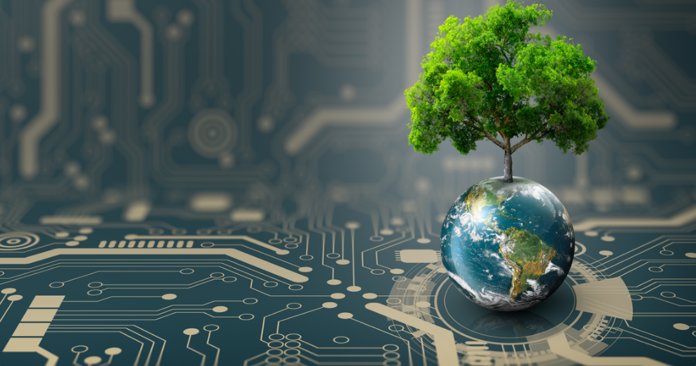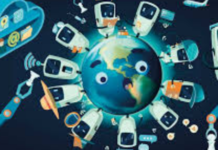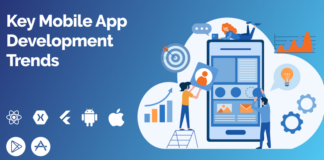Artificial Intelligence (AI) has quickly become an integral part of modern life, transforming the way we work, communicate, and interact with technology. From virtual assistants to recommendation systems, AI-powered technologies are embedded in many aspects of our daily routines. Although many people may not realize it, AI is quietly working behind the scenes to enhance our lives and make tasks more efficient. Here’s a closer look at how AI is shaping our everyday experiences.
AI in Personal Assistants
One of the most visible examples of AI in daily life is the rise of virtual personal assistants like Siri, Alexa, and Google Assistant. These AI-powered tools help users with a range of tasks, from setting reminders and answering questions to controlling smart home devices. Using natural language processing (NLP), these assistants understand and respond to human speech, making it easier to manage tasks without needing to type or search manually.
As AI evolves, these personal assistants are becoming smarter and more intuitive, learning user preferences and behaviors to offer personalized responses and suggestions. In the future, AI-driven virtual assistants could play an even more central role in managing our personal and professional lives.
AI in Recommendations and Personalization
AI is at the heart of recommendation engines used by companies like Netflix, YouTube, and Amazon to suggest content and products to users. These algorithms analyze user behavior, preferences, and past interactions to recommend movies, music, books, or products that are likely to interest the individual. This personalization not only improves the user experience but also helps businesses increase engagement and sales.
In addition to entertainment and shopping, AI-driven personalization is being used in fields such as education, where AI systems can tailor learning materials to individual students’ needs, and healthcare, where AI helps personalize treatment plans based on patient data.
AI in Social Media
Social media platforms rely heavily on AI to manage content, enhance user experiences, and detect harmful or inappropriate behavior. AI algorithms curate news feeds, prioritize posts, and suggest connections, ensuring that users are presented with content that matches their interests. AI is also used to filter out spam, detect fake news, and moderate harmful content, making online spaces safer for users.
However, the role of AI in social media has also sparked ethical debates, especially regarding data privacy and the manipulation of information. As AI continues to influence what we see and interact with on social platforms, questions about the transparency and fairness of these algorithms remain critical.
AI in Healthcare
AI’s potential to revolutionize healthcare is one of its most exciting applications. AI is already being used to assist in diagnosing diseases, analyzing medical images, and developing personalized treatment plans. Machine learning models can analyze vast amounts of medical data to detect patterns and provide insights that help doctors make better decisions.
For example, AI systems are being used to detect early signs of cancer, assist in robotic surgeries, and monitor patients’ vital signs in real-time. As AI technologies advance, they will likely play an even more prominent role in preventive medicine, helping to predict and prevent health issues before they become critical.
AI in Transportation
Self-driving cars are perhaps one of the most well-known applications of AI in transportation, and while fully autonomous vehicles are still in development, AI is already improving transportation systems in other ways. AI-powered navigation apps like Google Maps use machine learning to predict traffic conditions and suggest the fastest routes. Ride-sharing services like Uber and Lyft rely on AI to optimize routes, match riders with drivers, and set dynamic pricing.
AI is also being used in the development of intelligent traffic management systems that can reduce congestion and improve road safety. These systems use real-time data to adjust traffic lights, monitor accidents, and reroute vehicles, making urban transportation more efficient.
AI in Customer Service
Many businesses are adopting AI to improve customer service through chatbots and virtual customer service agents. These AI-powered tools can handle common customer inquiries, troubleshoot problems, and provide information without human intervention. By automating routine interactions, companies can reduce response times and free up human agents to handle more complex issues.
Chatbots are particularly valuable in industries like e-commerce, banking, and telecommunications, where customer support is in high demand. As natural language processing (NLP) technology improves, these AI systems are becoming more capable of understanding and responding to customers in a more conversational and human-like manner.
AI in Smart Homes
AI is also at the core of smart home technology, where it powers devices such as thermostats, security systems, and appliances. AI-enabled smart home systems learn from the behavior of household members to optimize energy use, enhance security, and provide convenience. For instance, smart thermostats can learn a user’s schedule and preferences, adjusting the temperature automatically to save energy and improve comfort.
AI-powered home security systems can analyze video feeds in real-time to detect suspicious activities and alert homeowners or authorities. Similarly, AI in smart appliances like refrigerators can help with inventory management, suggesting recipes based on available ingredients.
The Future of AI in Everyday Life
As AI technology continues to evolve, its influence on everyday life will only grow. From wearable health devices that monitor wellness in real-time to AI systems that optimize energy consumption across entire cities, AI will play an increasingly prominent role in making daily life more efficient, personalized, and interconnected.
However, as AI becomes more integrated into society, it is essential to address the ethical challenges it presents, such as data privacy, job displacement, and bias in decision-making. The future of AI must be shaped by careful consideration of its impact on individuals and society as a whole, ensuring that AI technologies are used responsibly and ethically.
AI is already deeply embedded in many aspects of everyday life, from the devices we use to the services we rely on. Its ability to learn, adapt, and improve over time means that AI will continue to shape the future, driving innovation and convenience across industries. While the benefits of AI are clear, so too are the ethical considerations that must be addressed to ensure its responsible development and use.






